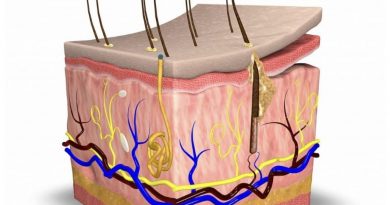Skin Donation
Skin, the largest human organ which protects us from heat, cold, UV rays, and bacteria and enables us to have our sense of touch is capable of mending itself from regular wear and tear, except when it is badly burnt or damaged and requires skin transplant.
It may not be a very widely known but like any organ skin can be donated and transplanted too. Just as organ donation can be a life saver for people in need of transplants due to organ failure, skin donation gives a new lease of life to those whose skin damage cannot be repaired through natural regenerative process, like in cases of severe burns. According to the National Crime Records Bureau’s report of 2012, three out of four skin burns accidents occur at home. The report states that 1.5 lakhs or 80 per cent of the accidents take place in kitchen making women and children susceptible to burns. Apart from that 50,000 incidents happen in industries, 6,000 take place on roads and 505 occur due to crackers.
Out of 10 lakh people who get burnt every year, at least half of them get help from skin donors.
Things to know about skin donation:
- Anyone above the age of 18 years can donate skin. Also, every person who donates eyes is eligible for skin donation. Though, there is no mandate that if you are donating your eyes, you need to donate skin as well.
- The skin consists of two layers namely outer epidermis and inner dermis. During harvesting, the retrieval team takes only the epidermis and a part of the dermis. Only 0.3mm thickness of the skin is harvested.
Also Read: Skin Transplantation Performed In Government Hospital For The First Time - Skin can be donated within six hours from the time of the death.
- Post death, skin is taken from hidden parts that are thighs, legs and back. Taking out skin does not cause any bleeding or disfigurement. After harvesting the skin, the areas are covered with bandages.
- Unlike organs, the donated skin can be stored in skin banks for five years, providing more flexibility to surgeons who can use it for various burn cases.
- Unlike kidney, liver or bone marrow transplant, in skin transplant, blood or tissue match between donor and recipient is not required. Anyone’s healthy skin can be put on any one.
- Deceased person should not be suffering from diseases like AIDS, HIV, skin cancer, Hepatitis B and C, Jaundice, Sexually Transmitted Diseases, Tuberculosis, active skin disease and septicemia.
- Individuals having diabetes or hypertension can donate their skin.
- People who have tattoos on their body or piercing can also donate their skin.
- For skin donation, the deceased person is not to be taken to skin bank or any hospital. The kin can call the nearest skin bank and retrieval team will come to the place of death that can be either home or hospital.




